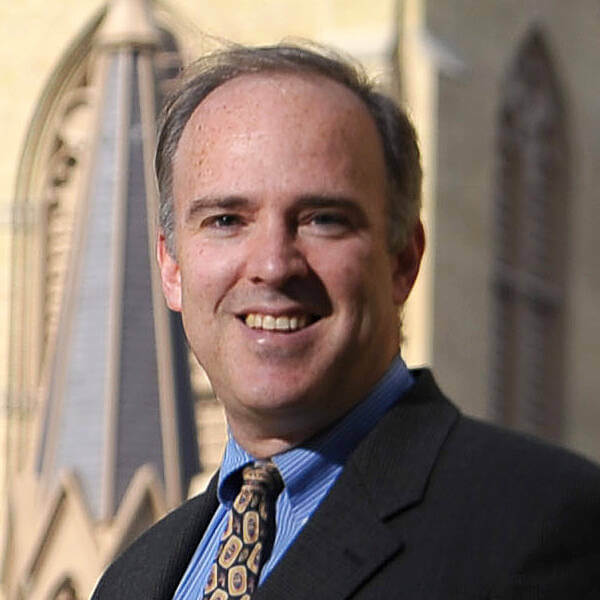A Catholic approach
February 24, 2021
I remember it was about a week after the Floyd shooting, and it was I think it was a Monday, if I remember. It was right after Pentecost Sunday. It was a very beautiful summer evening, kind of cool and sunny. The sun was going down. And I remember we gathered outside Hesburgh Library where the reflecting pool is, and we heard students and leaders on campus and Father Jenkins offered words of commemoration and reflection and consolation. But also, I very much remember that the scriptures were read in the scriptures from Pentecost Sunday talking about the Holy Spirit descending upon the disciples. And then we proceeded from there to walk quietly and reverently to the grotto where we prayed. And and it struck me that there was this is a great moment that we as a Catholic university were responding just as in a way that was so deeply embedded in our mission, just as Catholic should through prayer, and that not having all the answers are now there's a sense in which something like Floyd’s shooting just leaves you kind of speechless.
And Father Jenkins even said, you know, I grew up. His words were, I don't have all the all the words for it, and I you know, I think that there's something about turning to prayer and the intersection of the Holy Spirit to be our guide, that it's through these kinds of supernatural resources, that we find insights and we find response and and kind of orienting ourselves towards God. And I think that that was so there was yeah, that was deeply Catholic. We were responding as Catholics and something that made me very proud and very happy. And it kind of provided kind of a model or prototype for me as I then thought about how to kind of expand that idea.
I think in some of the kind of secular, dominant divisions around the country, it's primarily based upon power and upon kind of taking on the power structures. And I don't deny there is a place for that. We can't be naive that it has to be a kind of empowerment and minorities and so forth. But if it's just that it sounds like it's just tearing down or is just power replacing power, challenging power. In the Christian vision, we have this vision of restoring right relationships, of ultimately creating a community based upon friendship, where nobody feels like an outsider. There's a kind of active ligaments of friendship that bind people together. And I think this is also what King was crusading for. He talked about the beloved community. So there was a positive vision that he was holding out and he talked to our brothers and sisters living together and being arm in arm. And, you know, that kind of vision is one of restored friendship. And I think that that's a beautifully appealing and promising vision that a lot of people can get behind. And I think we have, as a Catholic University, that we have a strong basis for that.

Daniel Philpott
Daniel Philpott is a professor of political science at Notre Dame.